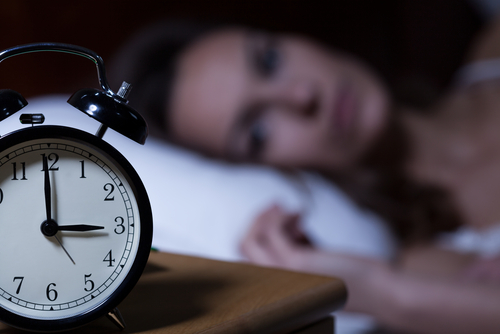Study Reveals Military Spouse Sleep Disorders Are Common
According to the American Academy of Sleep Medicine, active duty military personnel have a high prevalence of sleep disorders, such as sleep apnea, insomnia, and short sleep duration. Results also show that these sleep disorders lead to medical issues, such as depression, anxiety, and more. With sleep research growing for active duty military personnel, many are getting the help they need through professional sleep clinics.
When examining military personnel sleep disorders, a recent study by the RAND Corporation looked at an often overlooked side of the issue – spouses of active duty military personnel. Spouses of those actively serving in the military also experience many of the same sleep disorders due to spouse deployment and other aspects of military lifestyle.
Although there are many support groups and programs for military spouses dealing with deployment, loneliness, stress, and other issues, many spouses do not recognize the potentially destructive results their sleep habits have on them and their families.
According the study’s senior investigator, Dr. Wendy Troxel, PhD, a senior behavioral and social scientist at the RAND Corporation, “sleep problems are really a very salient feature in military spouses’ lives and interfere with daytime functioning.”
Study Methodology
In order to understand why military spouses suffer many of the same sleep disorders as their husbands or wives, researchers with the RAND Corporation set out to gather a group of military spouses to research. Their study examined about 1,500 military spouses ages 19-65, with the median age of 33, married to service members across all military branches.

Participants were asked to rate their sleep quality, daytime fatigue, daytime impairment, sleep duration, as well as health, marital satisfaction, and depressive symptoms through telephone and web-based surveys. Researchers recorded participants results and examined the data for trends and analysis.
Key Findings
The results show that 18 percent of military spouses reported extreme short sleep duration, which is defined as less than 5 hours a night. This is significantly higher than rates within the general population of those not actively serving in the military, or married to active duty military personnel.
About 44 percent reported sleeping 7 hours of sleep or less per night, and over half (54%) reported daytime fatigue due to lack of sleep. Military spouses also indicated that their sleep worsened when the service member was either currently or previously deployed. Those in the study that reported sleep problems were also most strongly associated with depression, highlighting the importance of screening for sleep problems among military spouses.
Recommendations
According to Troxel, spouses of active duty military personnel are counseled to seek help at sleep clinics to better understand and fix their sleep disorders.
“I think it’s important for both service members and spouses to recognize the importance of sleep, and if they’re experiencing poor sleep quality on a regular basis or experiencing significant fatigue that’s interfering with daily functioning, that they speak to somebody about it,” said Troxel. “Sleep affects every facet of our physical health and functioning, but also it impacts our relationship health and our ability to be supportive to our partners.”
Just last year the Centers for Disease Control and Prevention (CDC) published an article outlining the issues associated with insufficient sleep, calling it a public health problem. “An estimated 50-70 million U.S. adults have sleep or wakefulness disorder,” and counseled that adults need 7-8 hours of sleep each night.
If you live in Alaska and are a spouse of active duty military personnel, and would like to speak with a sleep specialist about your lack of sleep, click the link below.




